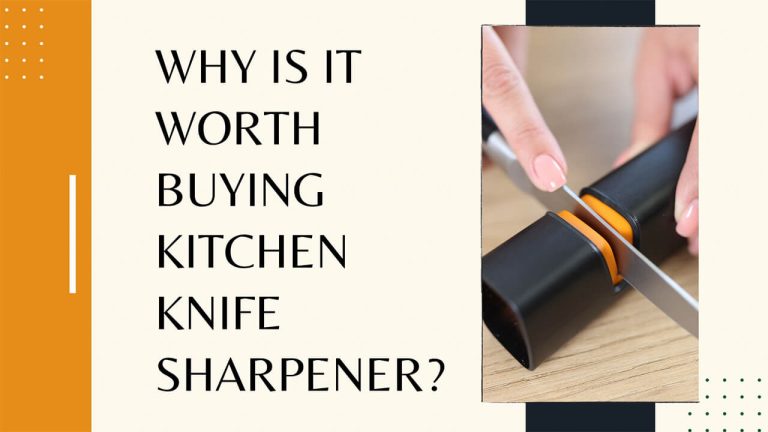If you are confused or in a dilemma about “Are smart locks safer than key locks?” then this article will clear all of your doubts.
The traditional key lock system has long been the standard for securing our homes. Smart locks have become a new competitor, though, as technology has advanced so quickly. We will explore the safety aspects of smart locks versus key locks. We will explore both the safety aspect as well as the features, advantages, and disadvantages of both.
The information in this article will equip you to choose the locking system that best satisfies the security requirements of your home. Let’s set out on this adventure to see whether smart locks are indeed safer than key locks.
Table of Contents
- Understanding Traditional Key Locks
- Introducing Smart Locks
- Comparing Security Features
- Addressing Concerns and Misconceptions
- Factors to Consider: Are Smart Locks Safer Than Key Locks
- Top 6 List of Best Smart Locks
- Conclusion
Understanding Traditional Key Locks
It’s important to know how key locks work before understanding the argument over smart locks and how safe they are in comparison to conventional key locks. For many years, traditional key locks have been the standard option for securing residences. Let’s examine these locks’ qualities and drawbacks in contrast to smart locks.
Let’s Get a Detail Analysis
Key locks depend on a mechanical system that is started by a real key. The internal pins of the lock are brought into alignment by inserting the key into the cylinder, enabling the lock to be twisted and the door to be unlocked. Due to its familiarity and ease of use, this simple procedure has been widely adopted.
Traditional key locks do have some security flaws, though. The potential for crucial loss or theft is one of the main worries. A key lost or getting into the wrong hands poses a serious security risk. Additionally, keeping track of many keys for various access points can be difficult and confusing.
The vulnerability of key locks to lock-picking methods is another factor to take into account. A skilled person might manipulate the pins and tumblers within the lock cylinder to obtain access. This technique exposes a flaw in conventional key lock systems, yet is difficult for the typical individual to use.
Additionally, standard key locks are unable to track door activity. Once the door has been locked, it is hard to tell whether someone has entered or exited the building without personally verifying. This flaw might limit the overall security and monitoring abilities of key lock systems.
In conclusion, traditional key locks have been a dependable option for safeguarding homes. It doesn’t mean that key locks are very safe. You can’t ignore the problems like lost or stolen keys, lock-picking vulnerability, and a lack of activity monitoring.
Now that we have a better understanding of traditional key locks and their limitations, we can delve deeper into the world of smart locks. By exploring their features and benefits, we will evaluate whether smart locks truly offer enhanced safety compared to key locks.
Introducing Smart Locks
Now let’s get to know our game changer , which is none other than smart locks. The emerging smart lock technology has gained significant attention. smart locks have revolutionized the way we secure our homes. Smart locks have become a game-changing replacement for conventional key locks when it comes to the safety and security of our homes.
Let’s dive deep into
In contrast to mechanical locks, smart locks provide a keyless access solution that incorporates cutting-edge technology with home security. You can say goodbye to the days of fumbling for keys or stressing about their loss or duplication when you use smart locks.
These innovative locks make use of a variety of access techniques, including PIN numbers, biometric authentication (such as fingerprint or face recognition), and smartphone apps. Smart locks offer a new level of comfort and flexibility by doing away with the requirement for traditional keys.
A fundamental component of smart locks is remote access and control. You can easily lock or unlock your doors from anywhere as long as you have an internet connection thanks to specialized smartphone apps. Besides giving you peace of mind, this capability makes it possible to offer access to visitors or service providers when you are not at home and provides easy access when it is needed.
Furthermore,
Smart locks can easily integrate with already installed smart home devices. Transforming your home into a hub of connectivity You can operate your lock with basic voice commands to connect with voice assistants like Amazon Alexa and Google Assistant. Integration with other smart devices enables comprehensive automation and enhanced home security.
Another significant advantage of smart locks is their advanced security features. To prevent unwanted access, they use strong encryption and authentication methods. You can keep track of who enters and leaves your home with activity tracking tools, which keep a record of door activity. To further deter potential thieves, some smart locks have tamper alerts and even integrated alarms.
In conclusion, smart locks have several advantages over conventional key locks. They offer a high degree of comfort and security for your house with keyless entry, remote access control, connection with smart home systems, and additional security measures.
Comparing Security Features
It is essential to look at each lock’s own security features when comparing the safety aspects of both locks. We’ll look at the factors that contribute to security to see if smart locks are actually more secure than key locks.
Smart Lock Security Features
To protect your home, smart locks use cutting-edge security measures. In order to guarantee safe access, they make use of authentication techniques. PINs, biometric authentication, and smartphone apps on smart locks improve security by preventing unauthorized entrance.
You can track door activity in real time with some smart locks that feature activity tracking. By keeping track of who enters and exits your house, this function improves security and gives you more control over access.
Key Lock Security Features
For security, traditional key locks rely on a physical key and lock mechanism. The mechanical design of key locks gives them strength. The internal pins and tumblers serve as a barrier to unlawful entry.
Key locks have long been a dependable security measure, but they are not without flaws. The integrity of the lock might be jeopardized by lost, stolen, or even duplicated keys. Furthermore, skilled individuals may use lock-picking methods.
Comparing the Security
In terms of security, smart locks provide a number of advantages over key locks. The use of encryption, authentication, and special access techniques enhances the security of smart locks. Real-time warnings and activity tracking add to your home’s protection.
However, despite their dependability, key locks are more vulnerable to security flaws like misplaced or copied keys and lock-picking methods.
Smart locks offer more levels of security and cutting-edge technologies than standard key locks. However, no lock is completely resistant to determined burglars.
By analyzing the security features of both lock types, we can gain insights into the safety levels they offer.
Addressing Concerns and Misconceptions
It’s crucial to clarify common misunderstandings and concerns when comparing the safety of smart locks to key locks. We will clarify these issues, dispel myths, and provide information about the security of smart locks in this instructive and comparative part.
Vulnerability myth
The hackability of smart locks is one issue that is frequently brought up. Respectable smart lock manufacturers prioritize security, employing strong encryption techniques to prevent unwanted access. Best practices, such as using secure Wi-Fi and using strong PINs and passwords, lower the danger of hacking.
Easy to manipulate is a myth
Another fallacy is that smart locks are simple to fool with or get around. Actually, tamper detection and anti-tampering features are frequently present in smart locks. This feature help to identify and prevent any attempts at unlawful access. In addition, using biometrics rather than conventional key locks offers an additional degree of security.
concerns about power outages is also a myth
Some people worry about power outages and how they can affect smart locks. Smart locks often have backup power options like batteries or physical keys for access during outages.
Misunderstanding of the complexity of smart locks
Another myth is that smart locks are challenging to operate. Actually, smart locks are created with user-friendly interfaces and clear smartphone apps. If you use them you will find how easy to use to anyone. Undoubtedly, users quickly acquire accustomed to smart locks.
To evaluate smart lock security, we must address concerns and misconceptions. Understanding measures, vulnerabilities, and user-friendliness determines safety.
Factors to Consider: Are Smart Locks Safer Than Key Locks
There are some crucial elements to take into account when choosing a smart lock for your home. We will examine these elements in this enlightening and contrasting section. This will certainly help you to decide whether smart locks are more secure than key locks and which smart lock best meets your demands.
Compatibility
Make sure the smart lock you select works with the style and dimensions of your door. The installation requirements for various locks may vary.
Power Source
Choose between a hardwired option and a battery-powered smart lock. Locks that operate on batteries are simpler to install but require frequent battery replacement.
Integration
If your preferred voice assistant or current smart home system is already in place, see if the smart lock can connect easily. Your smart home ecosystem is improved in terms of convenience and general functionality thanks to this connection.
User-Friendly Interface
Look for a smart lock that has an intuitive and user-friendly mobile app and user interface. Simple user interfaces and guided settings make things easier for users.
Security Features
Examine the smart lock’s security features, such as its robust encryption, multi-factor authentication, and activity monitoring. Pick a lock that corresponds to the level of security you want.
Brand Reputation
Verify the maker of the smart lock’s standing and performance record. Choose well-known companies who have a track record of creating dependable and secure products.
Budget
When comparing the features and costs of various smart lock alternatives, keep your budget in mind. Consider the cost in relation to the desired level of convenience and security.
You may select a smart lock that satisfies your security requirements, works well with your current smart home setup, and gives you peace of mind by carefully taking into account these criteria.
Top 6 List of Best Smart Locks
So, you may finally put whatever doubts you had about smart locks to rest. After this long article, you convince yourself that smart locks are safer than key locks. Now you may be confused about what good smart locks to buy. Don’t worry our team created a list of 6 best smart locks.
No products found.
Conclusion
We have examined the safety features and differences between key locks and smart locks in this thorough comparison. We can now make judgments about whether smart locks are actually safer than key locks by addressing concerns, dispelling myths, and examining security measures.
It’s crucial to remember that no lock is completely impenetrable to determined thieves. Smart locks do, however, make a strong case for increased safety when taking into account the extra security measures and cutting-edge technologies they use.
Finally, smart locks provide superior security options to conventional lock and key systems. You may decide whether smart locks are the safer option for your home security needs by knowing their benefits and taking into account the specific considerations that are relevant to you.




